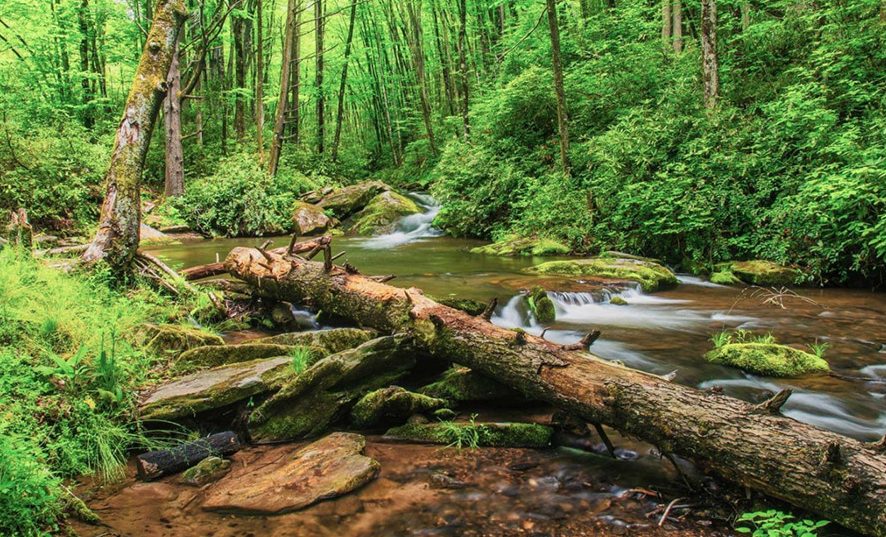The U.S. House on Wednesday passed the Great American Outdoors Act by a vote of 310 to 107, guaranteeing for the first time money for land acquisition and preservation. The bill now heads to President Donald Trump, who is expected to sign it.
Prior to the bill’s passage, Trump tweeted, “We MUST protect our National Parks for our children and grandchildren. I am calling on the House to pass the GREAT AMERICAN OUTDOORS ACT today. Thanks @SenCoryGardner and @SteveDaines for all your work on this HISTORIC BILL!”
Hailed as one of the most important environmental bills to pass in decades, the bill would spend about $900 million a year — double current spending — on the popular Land and Water Conservation Fund. Established in 1964, the Land Water Conservation Fund uses oil and gas revenue to expand public lands, safeguard natural areas and protect cultural heritage sites in every state across the country. Congress has regularly siphoned money away from it, shortchanging the efforts.
The new legislation also adds another $1.9 billion per year for the next five years on improvements at national parks, forests, wildlife refuges and rangelands.
Conservation advocates said the legislation would protect and expand access to public lands while providing tens of thousands of jobs in tourism-dependent communities.
“Passing the Great American Outdoors Act is quite simply the most significant investment in conservation in decades,” said Collin O’Mara, the president of the National Wildlife Federation. “It’s a huge win for wildlife, our national treasures, our economy and all Americans who enjoy our public lands for solace, recreation and exercise, especially amid this pandemic.”
“This act provides critical support for longstanding efforts to protect the public lands, restore public places to be safer and more enjoyable, and increase access to nature for all communities,” said Jennifer Morris, the chief executive officer of the Nature Conservancy. “This commitment to conservation will pay economic, health and society dividends for generations to come.”
While bipartisan, the bill was led in the Senate by Cory Gardner of Colorado and fellow Republican Senator Steve Daines of Montana. Gardner and Daines are among the Senate’s most vulnerable incumbents, and each represents a state where the outdoor economy and tourism at sites such as Rocky Mountain and Yellowstone national parks play an outsize role.
Daines and Gardner persuaded the president to support the bill at a White House meeting this year, even though Trump has repeatedly tried to slash spending for the Land and Water Conservation Fund in his budget proposals.
“By fixing and repairing our public lands and national parks, we not only have the chance to improve the roads, hiking trails, campsites and visitor centers for generations to enjoy,” Gardner said in a statement after the House vote, “but also to create thousands of job opportunities in Colorado and across the nation at a time when our country needs them most.”
Arizona Representative Raul Grijalva, chairman of the House Natural Resources Committee, called the bill “one of the biggest wins for conservation in decades.’’
“We have a generational opportunity to ensure America’s crown jewels are protected,’’ he said, adding that the bill would ensure all tools available are used to help the nation respond to the climate crisis and protect landscapes, clean water and clean air.”
At a time of intense partisan disagreements, “it is perhaps more necessary that ever to demonstrate we can still bridge the divide … and work together to find common ground,” said Grijalva, a Democrat. “This bill goes beyond politics. It’s about ensuring that we pass along a legacy of public lands.”
“The Great American Outdoors Act is a perfect example of Washington playing political games,’’ said Utah Rep. Rob Bishop, the top Republican on the natural resources panel. He accused the bill’s supporters of taking “a bipartisan and popular idea to fix our parks and spur job creation” and combining it with “a divisive measure” on land and water conservation “that will increase our debt” and do little for economic recovery.
“At a time when America is putting a record amount of debt on the backs of future generations to cope with COVID-19, now is not the time for reckless spending or new mandatory programs that have nothing to do with the pandemic or stimulating growth,” Bishop said.
The bill’s critics, mostly Republicans, complained that it would not eliminate an estimated $20 billion maintenance backlog on 640 million acres of federally owned lands and have complained about its impact on the deficit. The bill authorizes $9.5 billion for maintenance over five years. Some Western lawmakers have also expressed concerns that the legislation would encourage the government to acquire more private property in their states when federal holdings are already extensive.
Photo courtesy Pisgah National Forest














